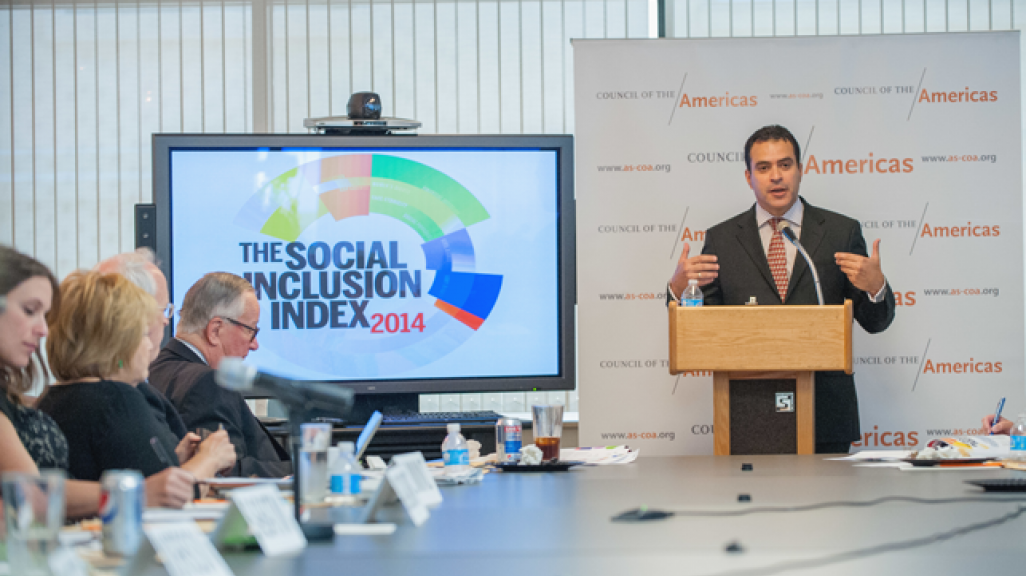Summary: Is Latin America Becoming More Socially Inclusive?
Summary: Is Latin America Becoming More Socially Inclusive?
Experts discussed Americas Quarterly's new Social Inclusion Index, which ranks 17 countries in the Americas.
Keynote Speaker:
- Kevin Casas-Zamora, Secretary for Political Affairs, Organization of American States and non-resident Senior Fellow, Latin America Initiative, Brookings Institution
Panelists:
- Christopher Sabatini, Editor-In-Chief, Americas Quarterly and Senior Director of Policy, Americas Society/Council of the Americas
- Alana Tummino, Senior Editor, Americas Quarterly and Director of Policy, Americas Society/Council of the Americas
- Judith Morrison, Senior Advisor for the Gender and Diversity Division, Inter-American Development Bank
- Elizabeth Zechmeister, Associate Professor of Political Science and Co-Director of the Latin American Public Opinion Project (LAPOP), Vanderbilt University
Access the full Social Inclusion Index.
Summary
On July 30, Americas Quarterly launched the third edition of the Social Inclusion Index during a luncheon in Washington, D.C. The Index is part of Americas Quarterly Summer 2014 issue on higher education and competitiveness.
Keynote speaker Kevin Casas-Zamora from the Organization of American States and the Brookings Institution opened the launch by contextualizing the Index within Latin America’s recent history. Panelists presented in-depth data and analysis on the Index, outlining its methodology, results over the past three years, and discussing reactions to the ranking. Participants also gave recommendations for governments to improve social inclusion.
Latin America’s Progress on Social Inclusion
Speakers highlighted the achievement of compiling an Index like AQ’s. An analysis of social inclusion disaggregated by race and gender would not have been possible 10 or 20 years ago, and the Index demonstrates how far the region has come, they said. AS/COA’s Christopher Sabatini described how the Index is the result of positive developments over the last three decades. “The macro-economic reforms of 10 to 20 years ago have largely created, minus a few exceptions, macroeconomic stability in these countries to the point now where we no longer talk about democracy or even economic growth, or even poverty alleviation,” he said. “We need to talk now about social inclusion, expanding those rights and thinking about it in a more expansive way.”
Casas-Zamora also lauded the improvements in the region, saying “the current generation has in its hands the daunting task of deepening democracy by creating more inclusive societies, without destroying democracy in the process.” He added: “The trend is clear: in virtually every variable considered by the Index, Latin America is doing better than in the past. Despite serious problems of poverty, inequality and marginalization, the region is moving in the right direction when it comes to social inclusion.”








